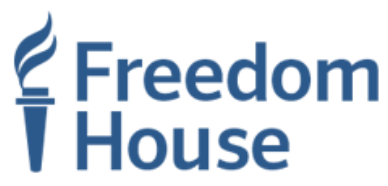FOR IMMEDIATE RELEASE

Washington - December 8, 2020 — A growing number of governments are employing digital tactics to repress political opponents and distort their countries’ online media environments ahead of elections, according to a new Freedom House research project.
Election Watch for the Digital Age examined 40 elections and referendums held between June 2018 and May 2020, and found that 88 percent of these contests were marred by digital election interference. Political incumbents spread false rumors about opposition candidates, authorities shut down the internet, and police arrested individuals for speaking out on social media. As a result, voters in 32 countries were inhibited in their ability to access objective information about candidates and meaningfully participate in the political process.

Freedom House documented such incidents in countries across the democratic spectrum, from Azerbaijan to Australia. Voters in the United States, who have already experienced a manipulated information environment during the 2018 elections, are facing another round of digital election interference, as outgoing president Donald Trump uses social media to spread false claims of victory and stoke rising intimidation against state politicians and even low-level election workers.
“It was extraordinary to witness not only the depths that a US president would go to undermine the democratic process, but also how public officials, tech companies, and civil society stepped up to protect the integrity of our elections,” said Adrian Shahbaz, director for technology and democracy at Freedom House. “Unfortunately, people in many countries can’t rely on the same institutional checks and balances or media attention that we have here.”
Election Watch for the Digital Age offers Election Vulnerability Index (EVI) data and accompanying analytical assessments, which are derived from Freedom House’s annual Freedom in the World and Freedom on the Net reports. This information allows users to identify specific areas of concern ahead of a country’s election, including online influence operations, internet shutdowns, and intercommunal tensions fanned by social media.
“The project will help election integrity teams in the public and private sectors to understand the many ways in which global elections are vulnerable to interference,” said Isabel Linzer, research analyst for technology and democracy, “and to work within their power to protect the democratic process, avoid complicity with authoritarian leaders, and reduce the potential for outbreaks of incitement and hate speech online.”
Freedom House piloted the project by examining contests in Burkina Faso, Côte d’Ivoire, Georgia, Jordan, Myanmar, Moldova, Uganda, the United States, and Venezuela, producing Election Vulnerability Index data as well as analytical preelection assessments on all nine countries.

Freedom House staff also partnered with in-country experts to closely monitor incidents of political, legal, technical, and informational interference in three Watchlist countries:
- Less than two weeks ahead of Myanmar’s November 8 general election, authorities extended a mobile internet blackout in Rakhine and Chin states, further marginalizing the one million inhabitants of these conflict-ridden areas. A Muslim political candidate faced coordinated disinformation on social media, and was accused of aiming to close Buddhist schools and introduce Arabic lessons into curriculums. Meanwhile, the country’s commander in chief accused tech platforms of bias against promilitary parties, apparently in response to numerous takedowns of coordinated inauthentic behavior by Facebook. The telecommunications ministry cited “fake news” laws when blocking a website that published investigatory pieces on corruption and acts of extralegal violence committed by the military.
- In Venezuela, at least 37 political organizations and over 100 civil society groups refused to recognize the results of the December 6 parliamentary election due to political interference from the regime of Nicolás Maduro. The electoral commission has refused to accredit several well-known independent media outlets to cover the vote. Police arrested journalist and opposition party coordinator Roland Carreño on terrorist financing charges, which Interim President Juan Guaidó dismissed as politically motivated. Intimate images apparently captured from Carreño’s phone were subsequently spread across Facebook, Instagram, and WhatsApp, and by leading news outlets, as part of a homophobic smear campaign.
- Presidential candidate Robert Kyagulanyi, better known as Bobi Wine, has been repeatedly arrested and physically harassed in the run-up to Uganda’s January 14 general election. Security forces have used rubber bullets, tear gas, and even live ammunition to disperse opposition rallies. Plainclothes police officers arrested a parliamentary candidate for filming evidence of the police crackdown. Wine temporarily suspended his campaign on December 1 over fears for the safety of his inner circle.
In 2021, Freedom House will produce preelection assessments and Election Vulnerability Index data for all major national elections around the globe. If you are interested in learning more about the project, please contact [email protected].
Explore Election Watch for the Digital Age now.
|